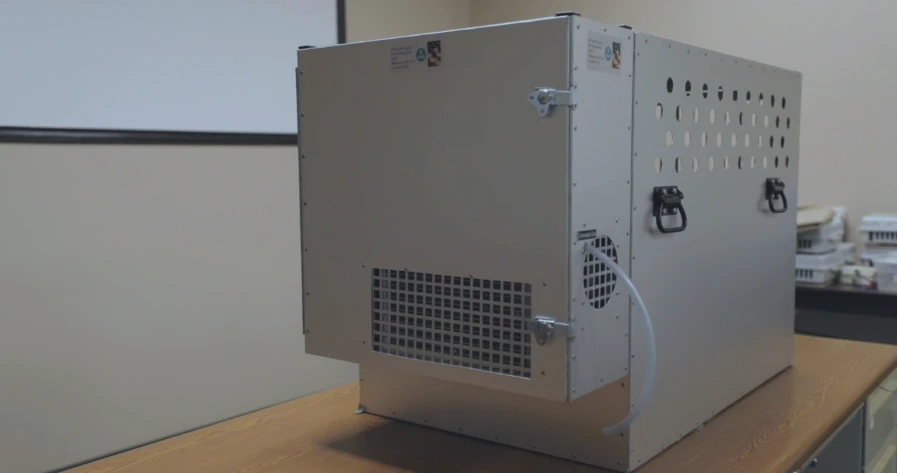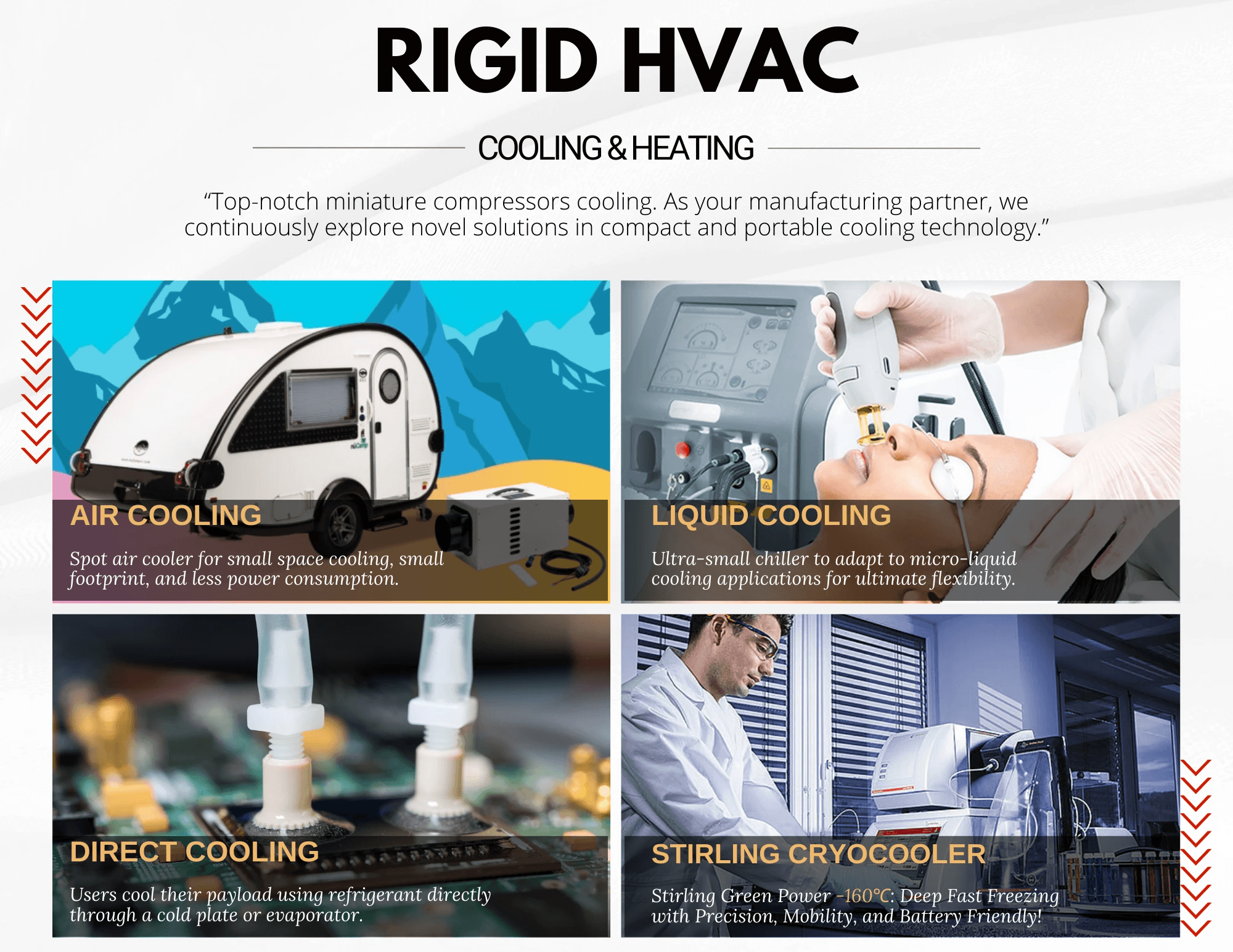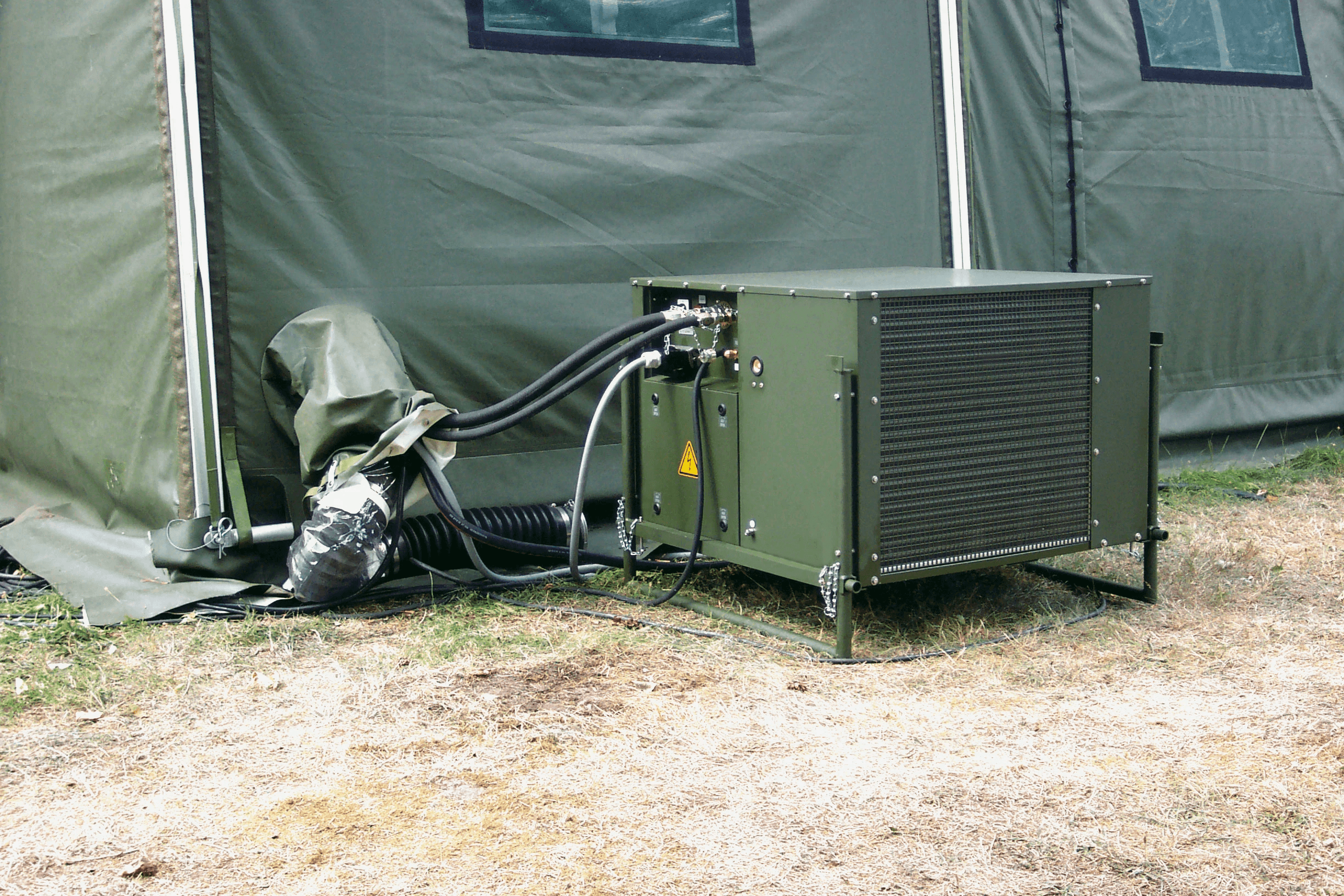Introduction

"RIGID is a miniature refrigerated compressor innovation leader in China. We keep looking for novel solutions in compact and portable cooling systems. We capture new technologies in mobile and compact cooling systems."
In a world where comfort is king, portable HVAC systems have emerged as a popular solution for those seeking relief from the sweltering heat or chilly winters. These versatile units offer a convenient way to regulate indoor temperatures without the hassle of permanent installation. But before you dive into the world of portable air conditioners, it’s essential to understand what they are and how they can fit into your lifestyle.
Understanding Portable HVAC Systems
Portable HVAC systems are self-contained units designed to cool or heat individual rooms without the need for ductwork. Unlike traditional air conditioning systems that require extensive installation, these compact units can be easily moved from one room to another, making them ideal for renters or those who frequently change their living arrangements. However, potential buyers often wonder: does a portable AC have to be vented at a window? The answer is yes, as proper ventilation is crucial for optimal performance.
Benefits of Using Portable Air Conditioners
One of the standout benefits of using portable air conditioners is their flexibility; you can easily transport them wherever you need cooling most. This adaptability makes them perfect for various settings—from home offices to bedrooms—allowing you to target specific areas that require climate control without wasting energy on unused spaces. Additionally, many people ponder whether ductless HVAC systems are cheaper than portable options; while ductless systems can offer long-term savings, portable ACs typically come with lower upfront costs and less commitment.
Common Misconceptions About Portable AC Units
Despite their growing popularity, several misconceptions about portable AC units persist in the market. One common question is: what is the disadvantage of portable AC? While they provide convenience and mobility, they may not cool large spaces as efficiently as central air conditioning systems do. Moreover, some consumers mistakenly believe that all portable units are noisy; however, advancements in technology have led to quieter models that deliver comfort without disruption—making it worth considering if investing in a portable air conditioner aligns with your needs.
What to Consider When Choosing a Portable HVAC System

When it comes to selecting the right portable HVAC system, there are several factors that can make or break your comfort level. Understanding these elements will help you navigate the options available and ensure you choose a unit that meets your specific needs. Let's dive into what you should consider before making a purchase.
Cooling Capacity Explained
Cooling capacity is one of the most crucial aspects of a portable HVAC system, measured in British Thermal Units (BTUs). The higher the BTU rating, the more space the unit can effectively cool; however, more isn't always better. If your portable AC is too powerful for your room size, it may cycle on and off frequently, leading to humidity issues—so it's essential to find that sweet spot.
One common question arises: Does a portable AC have to be vented at a window? Yes, proper ventilation is critical for optimal cooling performance. Without adequate venting, even the best units will struggle to maintain desired temperatures.
Energy Efficiency Ratings
Energy efficiency ratings are another key consideration when choosing a portable HVAC system. Look for units with high Seasonal Energy Efficiency Ratios (SEER) or Energy Efficiency Ratios (EER), as these indicate lower energy consumption for cooling output. While energy-efficient models might come with a higher price tag initially, they can lead to significant savings on utility bills over time—so don’t shy away from investing in efficiency!
Another common inquiry is: Is ductless HVAC cheaper? Generally speaking, ductless systems tend to be more energy-efficient than traditional units but may also require additional installation costs. Weighing these factors against potential long-term savings can help clarify whether investing in an efficient model is worth it.
Size and Portability
Size and portability play pivotal roles in determining how well your chosen portable HVAC system fits into your lifestyle and living space. A compact design allows for easy maneuverability between rooms or outdoor spaces while ensuring that you’re not sacrificing cooling power or efficiency. Keep in mind that some models come equipped with wheels or handles for added convenience.
However, don’t overlook weight; heavier units may be less practical if you plan on relocating them frequently within your home or office space. Assessing both size and portability will help ensure that you choose an air conditioner that's not just effective but also fits seamlessly into your day-to-day activities.
Types of Portable HVAC Systems and Their Uses

When it comes to portable HVAC systems, there are a variety of options available that cater to different needs and environments. Understanding the distinctions between these systems can help you make an informed decision about which one is best for your situation. Let’s delve into the popular types of portable HVAC systems and their unique applications.
Air Conditioner vs. Evaporative Cooler
Air conditioners and evaporative coolers are two popular choices among portable HVAC systems, but they operate quite differently. Air conditioners work by removing heat from the air, cooling it down, and then circulating it back into the room; they’re ideal for humid conditions where moisture removal is critical. On the other hand, evaporative coolers use water evaporation to cool air, making them suitable for dry climates but less effective in areas with high humidity—so if you're wondering What is the disadvantage of portable AC? consider that it's often more efficient in various climates compared to an evaporative cooler.
If you're leaning towards air conditioning but are concerned about installation hassles like venting, you might ask: “Does a portable AC have to be vented at a window?” The short answer is yes; proper ventilation helps maintain efficiency by expelling hot air outside while cooling your space internally. In contrast, evaporative coolers don’t require venting since they add humidity rather than remove it; this makes them easier to set up but potentially less effective when humidity levels rise.
Ductless HVAC Systems
Ductless HVAC systems offer another alternative within the realm of portable heating and cooling solutions. Unlike traditional units that rely on ductwork for airflow, ductless systems consist of an outdoor compressor unit paired with one or more indoor air handling units—perfect for maintaining comfort in specific rooms without extensive installation work. One common question arises: “Is ductless HVAC cheaper?” While initial costs can be higher than standard units, their energy efficiency may lead to long-term savings on utility bills.
These ductless setups provide flexibility as you can control temperatures in individual rooms or zones independently. This feature not only enhances comfort but also allows homeowners to save money by only cooling or heating spaces that are in use at any given time—a smart choice if you're trying to balance budget considerations with energy consumption! However, keep in mind that while ductless systems can be efficient, their installation requires professional expertise.
Rigid's Carry-On Portable Air Conditioner
For those who prioritize portability without sacrificing performance, Rigid's Carry-On Portable Air Conditioner stands out as an excellent option among portable HVAC systems. Designed with mobility in mind, this unit offers powerful cooling capabilities while being lightweight enough for easy transport between locations—think camping trips or temporary office spaces! If you’re asking yourself “Is it worth buying a portable air conditioner?” consider how much convenience this model brings compared to fixed installations.
The Rigid Carry-On also features user-friendly controls and energy-efficient settings that allow you to customize your comfort level based on personal preferences or environmental factors—making it versatile enough for various situations like outdoor gatherings or small indoor areas needing extra cooling relief during hot summer days. Plus, its compact design means it fits comfortably in tight spaces without compromising performance—a win-win scenario!
Installation and Ventilation Requirements

When it comes to installing a portable HVAC system, understanding the ventilation requirements is crucial for optimal performance. Many potential users wonder, Does a portable AC have to be vented at a window? The answer is generally yes; venting through a window allows hot air to escape while the unit cools your space. However, there are alternative methods that can also be effective, which we’ll explore further.
Does a Portable AC Have to Be Vented at a Window?
The short answer is that most portable air conditioners do need to be vented at a window or another opening. This is because they work by drawing in warm air from the room, cooling it down, and then expelling the heat outside. If you don’t vent your portable HVAC system properly, you may find yourself with less cooling power and higher energy bills—defeating the purpose of having an efficient unit in the first place.
However, some models come with unique features that allow for different venting options. For instance, certain units can utilize sliding glass doors or even walls as exit points for hot air. Still, if you're considering whether is ductless HVAC cheaper? remember that ductless systems often require professional installation but can offer more flexible solutions without traditional venting needs.
Alternative Ventilation Solutions
If you’re not keen on using a window for your portable AC unit’s exhaust hose, there are several alternative ventilation solutions available. One option is using an exhaust hose kit designed for door openings or other types of exits like vents or ceilings—just ensure these paths are sealed properly to prevent warm air from re-entering your space.
Another innovative method involves creating a DIY ventilation setup using flexible ductwork connected to your portable HVAC system; just make sure it’s well-insulated! While these alternatives may provide more flexibility in placement and installation, they might not be as efficient as traditional window venting methods.
Common Installation Mistakes
Even seasoned DIYers can make blunders when installing their portable HVAC systems! One common mistake is neglecting proper sealing around the exhaust hose; if there are gaps where hot air can leak back into your room, you’ll find yourself asking What is the disadvantage of portable AC? because it won’t cool effectively.
Another frequent error involves placing the unit in areas with poor airflow or obstructed vents—this can drastically reduce its efficiency and lifespan. Lastly, failing to regularly clean filters and check drainage levels could lead to performance issues down the line; after all, no one wants their investment in “is it worth buying a portable air conditioner?” questioned due to simple maintenance oversights!
Costs and Budgeting for Portable HVAC Systems

When considering a portable HVAC system, understanding the costs involved is crucial. The initial purchase price, installation fees, and potential energy bills all contribute to the overall investment. By weighing these factors against the benefits of a portable air conditioner, you can make an informed decision that aligns with your budget.
Is Ductless HVAC Cheaper?
Ductless HVAC systems often come with a higher upfront cost compared to traditional portable AC units. However, they can be more economical in the long run due to their energy efficiency and reduced maintenance needs. So, when asking yourself Is ductless HVAC cheaper?, remember that while the initial price tag may be steep, savings on monthly energy bills can make it a worthwhile investment.
Long-Term Savings vs. Initial Investment
When evaluating whether it's worth buying a portable air conditioner or opting for something like ductless systems, consider both short-term and long-term expenses. Portable HVAC systems typically have lower initial costs but may not be as energy-efficient as ductless options over time. Balancing these factors will help you determine if the convenience of a portable unit justifies its operational costs in comparison to other systems.
Worth the Money: Is It Worth Buying a Portable Air Conditioner?
The question Is it worth buying a portable air conditioner? depends on your unique circumstances and needs. If you require flexibility and ease of use without installation hassles, then investing in a portable HVAC system might be ideal for you. However, don't forget to weigh this against potential drawbacks; after all, what is the disadvantage of portable AC? Understanding your priorities will guide you toward making an informed choice.
Understanding Limitations and Disadvantages

While portable HVAC systems offer flexibility and convenience, they come with their own set of limitations that potential buyers should consider. Understanding these drawbacks can help you make an informed decision about whether investing in a portable air conditioner is the right choice for your needs. After all, you want to ensure that you’re getting the best cooling solution without any unpleasant surprises.
What is the Disadvantage of Portable AC?
One of the primary disadvantages of portable AC units is their cooling capacity compared to traditional systems. While they can effectively cool small spaces, they may struggle in larger areas, leading to uneven temperature distribution. Additionally, many users wonder, Does a portable AC have to be vented at a window? The answer is yes; proper ventilation is crucial for efficient operation, which can limit placement options within your home.
Another downside is noise level; most portable HVAC systems generate more sound than central air conditioning units or ductless systems. This can be particularly bothersome during nighttime use or in quiet environments where peace and tranquility are desired. Lastly, maintenance can be more frequent with portable units since filters need regular cleaning or replacement to ensure optimal performance.
Situations Where Portable AC Falls Short
Portable HVAC systems shine in specific scenarios but may falter in others—especially when it comes to extreme heat conditions. If you're living in an area where temperatures regularly soar above 90°F (32°C), a portable unit might not provide adequate relief compared to traditional cooling methods. Furthermore, if you're dealing with high humidity levels, evaporative coolers may perform better than standard portable air conditioners.
Space constraints also play a significant role; if you have multiple rooms requiring cooling simultaneously, relying solely on a single portable unit may lead to disappointment. In such cases, investing in ductless HVAC solutions could prove more effective and cost-efficient long-term—so many ask themselves: “Is ductless HVAC cheaper?” The answer often leans towards yes when considering energy savings over time.
Lastly, installation challenges can arise with some models; improper setup might lead to decreased efficiency or even damage over time. Users should be cautious about common installation mistakes that could hinder performance or void warranties—ensuring you get what you pay for when deciding if it’s worth buying a portable air conditioner.
Comparing Performance to Traditional Systems
When comparing performance between portable HVAC systems and traditional options like central air conditioning or ductless units, several factors come into play beyond mere cooling capacity. Traditional systems generally offer more consistent temperature control across larger spaces due to their design and ability to circulate air effectively throughout the home. In contrast, while a portable AC might serve its purpose well in smaller areas like bedrooms or offices, it typically lacks the power needed for widespread comfort.
Energy efficiency also varies significantly between these options; while modern ductless HVAC units often boast higher SEER ratings than most portables available today—making them cheaper over time—the initial investment may deter some buyers initially questioning: Is it worth buying a portable air conditioner? For those prioritizing budget-friendly solutions upfront but willing to sacrifice long-term savings and efficiency gains found elsewhere—portable options remain attractive despite their limitations.
Ultimately, understanding how each type operates will help consumers decide which system best suits their lifestyle needs without compromising comfort levels at home—whether through portability advantages or traditional reliability!
Conclusion

In the world of climate control, portable HVAC systems offer flexibility and convenience that many homeowners crave. However, it's essential to weigh the advantages and disadvantages before making a purchase. Understanding what to look for can help ensure you find the perfect unit for your needs.
Key Features to Look For
When selecting a portable HVAC system, consider cooling capacity, energy efficiency ratings, and portability features. Cooling capacity is vital; it determines how effectively the unit can cool your space. Additionally, energy efficiency ratings will help you gauge long-term savings on your utility bills—because who doesn't want to save a few bucks?
Another critical factor is size; make sure your chosen model fits comfortably in your living area while still being easy to move around when needed. Don't forget about noise levels; some units can be surprisingly loud. Lastly, check for additional features like programmable timers or remote controls that enhance usability.
Making the Right Choice for Your Needs
Choosing the right portable HVAC system depends on various factors unique to your situation—like room size and ventilation options. If you're wondering, Does a portable AC have to be vented at a window? remember that proper ventilation is crucial for optimal performance. In some cases, alternative solutions like venting through walls or using exhaust hoses may work better.
For those considering ductless options, you might ask: Is ductless HVAC cheaper? While initial costs may be higher than traditional systems, they often lead to lower energy bills over time due to their efficiency. Ultimately, assess how often you'll use it and whether it's worth buying a portable air conditioner based on your lifestyle needs.
Final Thoughts on Portable HVAC Systems
Portable HVAC systems can be game-changers in maintaining comfort during hot months but do come with their own set of challenges—like asking yourself: What is the disadvantage of portable AC? Common drawbacks include limited cooling range and reliance on proper ventilation methods that may not always be feasible in every home.
In conclusion, while these units provide great flexibility and convenience, understanding their limitations helps set realistic expectations. Investing in one can certainly pay off if you choose wisely based on your specific needs and preferences.